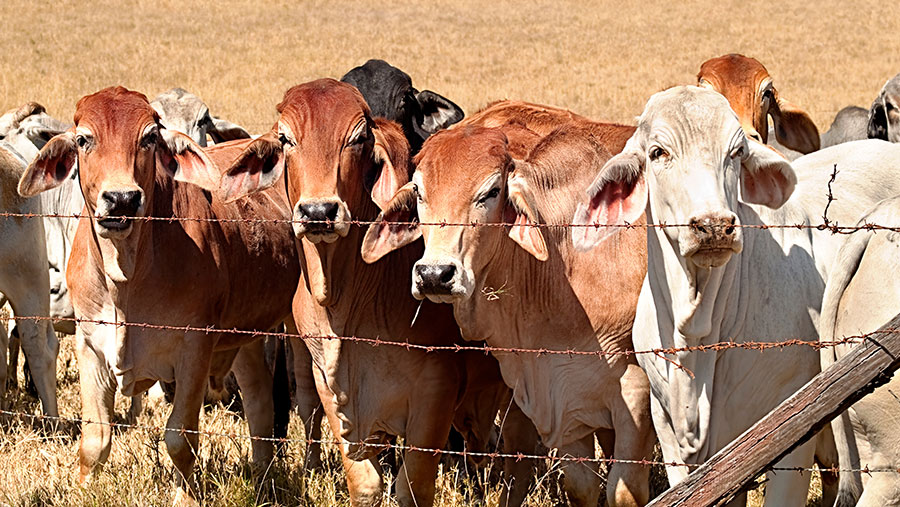UK-Australia trade deal ‘will carry high animal welfare cost’
 © Sherjaka/Adobe Stock
© Sherjaka/Adobe Stock Australian cattle farmers look set to ramp up production of intensively farmed beef to export to the UK, with negative environmental consequences.
The government’s impact assessment on the UK’s free-trade deal with Australia anticipates an increase in production to make the most of new tariff-free quotas.
See also: Sustainable Farming Incentive 2022: What farmers need to know
But a meeting of the Environment, Food and Rural Affairs (Efra) Committee on Tuesday 8 March was warned of the environmental consequences of accelerating production of intensively farmed beef on the other side of the world and shipping it to the UK.
Orla Delargy, head of public affairs at campaign group Sustain, said Australian farmers were “cockahoop” when the deal was announced, signalling their intention to accelerate production.
“That’s not what we need to be eating in order to have a climate-friendly, healthy and sustainable diet,” said Ms Delargy, pointing out that it was at odds with UK government policy.
The government was also criticised for ignoring climate change concerns when striking the free-trade deal – more than 30% of tree cover in Australia was lost in the two years to 2018 and a large proportion of that was due to beef production.
Anna Sands, trade policy specialist at the World Wide Fund for Nature, questioned why the UK government had not set core standards, including on climate effects, within free-trade agreements.
That could include not importing beef from systems linked to deforestation or land use change, she said.
Animal welfare
Australia’s animal health and welfare practices also came under fire at the Efra session. Ms Delargy suggested that use of antibiotics in its farmed animals was up to 16 times higher than UK levels.
“Standards are demonstrably lower in animal welfare in Australia than they are here,” she said, pointing to the feedlot system and underuse of pain relief.
James Russell, senior vice-president of the British Veterinary Association, said he was disappointed that the government had chosen to give away preferential access to UK markets without securing a commitment from Australia to improve animal welfare standards.
He referenced the practice of mulesing, where Australian sheep farmers cut skin off a live animal to prevent flystrike, often without use of pain relief.
Mr Russell described it as a “headline welfare harm”.
“It has never been practiced in the UK, so it is not as if we would have to do something reciprocal to balance it out,” said Mr Russell.
